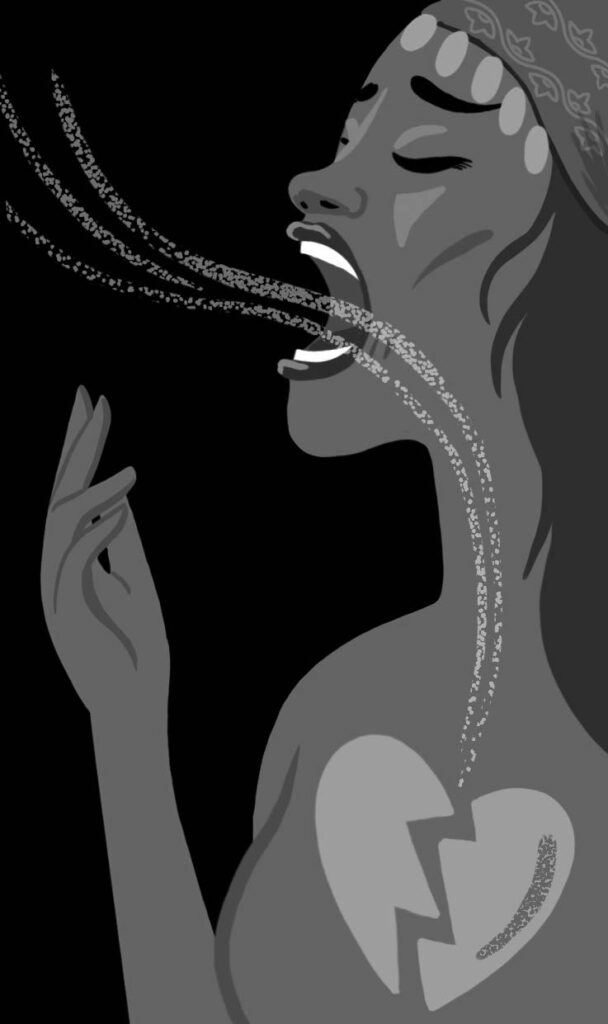An Israeli Canadian of Yemeni background, Ayelet Tsabari is the award-winning author of The Best Place on Earth, a story collection from 2013, and The Art of Leaving, a memoir from 2019. Her latest, Songs for the Brokenhearted, is a sweeping novel that spans decades — 1950 to 1995 — as it traces the lives of several interconnected characters while moving between Tel Aviv, New York, and a camp on the banks of the Yarkon River in Israel. This is the work of an accomplished writer who is certain of her subject and her craft.
Songs for the Brokenhearted centres on three generations of Mizrahi Jews, including those who arrived in Israel between June 1949 and September 1950 as part of Operation Magic Carpet, which airlifted approximately 49,000 of them out of Yemen. These émigrés, alongside countless others from Djibouti, Eritrea, Iran, Iraq, Morocco, and Saudi Arabia, were housed in overcrowded transit camps under prison-like conditions. Surrounded by barbed-wire fences, they slept in tents and endured hunger, disease, and desolation.
The novel unfolds over thirty-five chapters that chart the past and present lives of three main characters and that shift between third person and first person. A prologue introduces Yaqub Hason, a young storyteller who in 1950 is orphaned and living in “an all-Yemeni immigrant camp in Rosh HaAyin, once a British air force base and now a large tent city, in a new country born of hope and despair, built on the dreams of some and the catastrophe of others, on an ancient land, soaked with blood.” In the first chapter, we meet the protagonist and only first‑person narrator, Zohara Haddad, in her thirties, recently separated and on leave from her doctoral program in New York. It is August 1995, and Zohara’s mother, Saida, has just died. Within hours of receiving the shocking news, Zohara leaves her retreat in Thailand and flies to Tel Aviv. Upon landing, she takes a taxi to Segula Cemetery and joins the mourners, who watch as her “mother’s small body, covered in a white sheet, was lowered into the earth.” Two chapters later, we meet Yoni, Zohara’s seventeen-year-old nephew, who found his beloved grandmother slumped on her kitchen floor and is angry at himself for not having arrived in time to save her. He longs to give “one last hug” to the woman “who raised him, who sang to him, who told him stories, who loved him.”

Finding identity through kinship and song.
Jamie Bennett
The characters are linked via historical events that affect them in profound ways. In the camp, Yaqub meets Saida, also an orphan from northern Yemen. They fall in love, but Saida at eighteen is already married with a young son, Rafael. Yaqub and Saida’s moving story of separation and eventual reunion takes place against the backdrop of the infamous Yemenite Children Affair. Between 1948 and 1954, as many as one in eight Yemeni Jewish babies and toddlers were removed from immigrant camps — often carried off to hospital and then reported dead. While many did die, others were either given or sold to Ashkenazi Jews, some of whom were Holocaust survivors. When Rafael disappears from the nursery, Saida is heartbroken. Years later, a conscription order from the Israel Defense Forces arrives for him, and Saida wonders if he might be alive. All efforts to locate him prove futile, however, and he remains lost to her forever. Tsabari is possibly the first English-language writer to feature this shameful period in her fiction, and she treats the resonant and unresolved trauma with care and compassion.
Saida goes on to have two daughters, Lizzie and Zohara. “I had been born into the pit my brother’s death or kidnapping — depending on which one of my parents you asked — had left in our lives,” Zohara explains. “Born out of the hope that I might alleviate some of that pain, light up a house steeped in darkness.” We follow the self-described “expert at grief” as she struggles to come to terms with her brother’s absence, her father’s death when she was eleven, and her mother’s secrets.
Zohara’s search for understanding leads to revelations about her heritage. She learns about the camps and the missing Yemeni children; the truth about her parents’ unhappy marriage; and that her mother was a second wife who nonetheless grew attached to Bruria, her father’s first wife and true love, whose barrenness led him to Saida. Zohara also discovers that her mother composed and sang love songs in Arabic, in the Yemeni tradition of unnamed female poets. To honour Saida — despite their strained relationship — Zohara has those songs translated. Later she decides to expand the scope of her dissertation on feminist Israeli poetry to include Mizrahi voices and a critique of the literary canon’s emphasis on Ashkenazi writers.
Of Lizzie’s three children, Zohara is closest to Yoni, who does not know his father and feels “lonely in his own home, an outsider in his own family.” He is most at ease with Saida, a nurturing and protective figure who helps raise him. After her death, when Yoni becomes observant and takes up with a right-wing group that opposes Yitzhak Rabin for having signed the Oslo Accords, it is out of his desperate need for community. He protests at the peace rally on the evening of November 4, 1995, when the prime minister is assassinated by Yigal Amir. Since Yoni, like the assassin, is of Yemeni descent, he is arrested at the scene and briefly detained — an experience that affords him fresh insight. He chooses “a life of questions” over religious certitude and the support of family — his aunt, mother, stepfather, and half-sisters — over the company of ideologues.
In this rich tapestry, Tsabari weaves a nuanced tale that eschews absolutes. She acknowledges the violence that marked the founding of Israel and the country’s constant state of conflict, the discriminatory treatment of Yemeni Jews, as well as the lasting effects of domestic assault. But she also gives Yaqub, Zohara, and Yoni a greater understanding of identity and home. Zohara, in particular, seizes on kinship and song to help ground her in place. She accepts the advances of Nir, a fellow Yemeni Jew. And she joins a group of Yemeni women singers — they knew and admired her mother, who sang “like clear water drawn from a deep well”— and finds her own voice. “It was as if my body knew the songs, as if they’d been folded in there, imprinted, as if the other voices, my ancestors’ voices, became my own,” she says near the end. “I opened my mouth, and they flowed through me.”
Ruth Panofsky teaches English literature at Toronto Metropolitan University. She recently received the Royal Society of Canada’s Lorne Pierce Medal.

